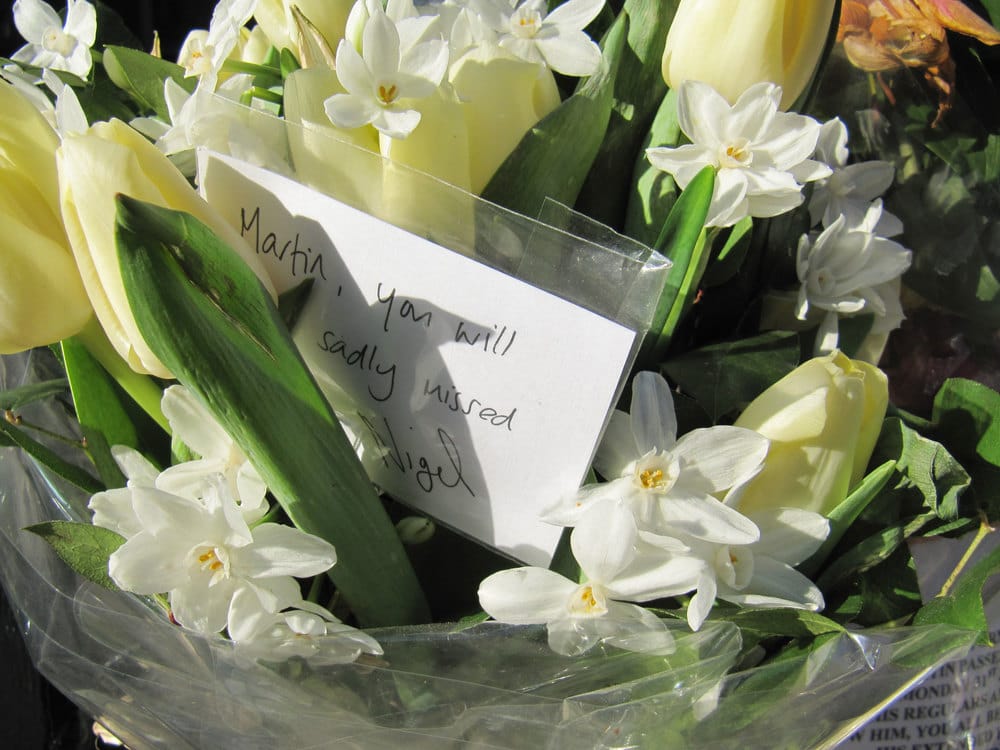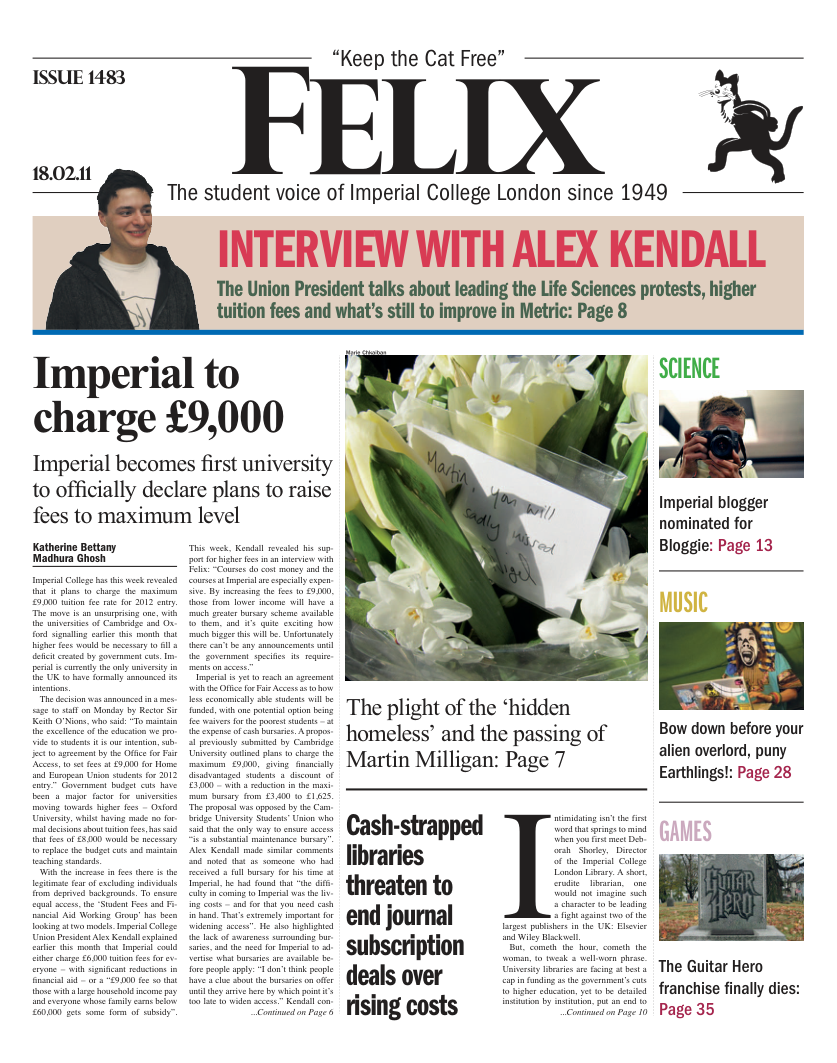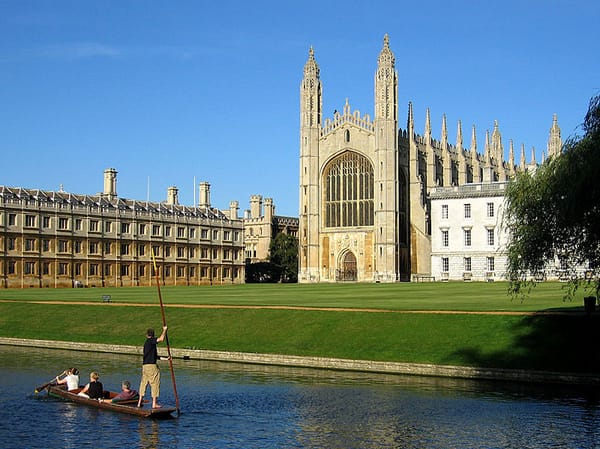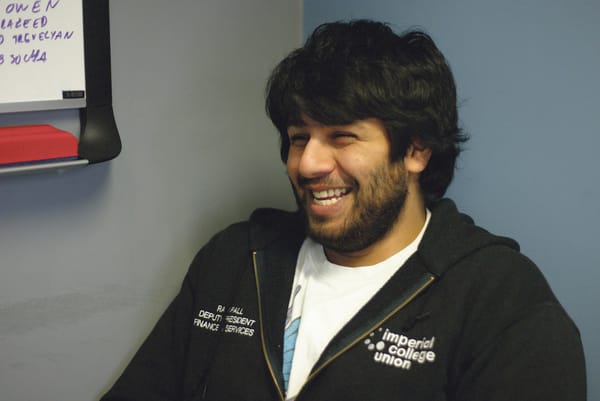The ‘hidden homeless’
Lizzie Crouch and Anna Perman remember Martin Milligan and look deeper into the problem of homelessness in the UK

A few weeks ago, many people were saddened to hear that Martin Milligan, who many knew as the man who sold the Big Issue in the South Kensington pedestrian tunnel, had passed away.
People flustered by the morning commute who would usually put their head down and stride past a homeless person, would stop to talk to Martin, buy a Big Issue from him, offer him food. He was part of people’s lives and he will be missed by many.
In our daily lives it is not uncommon for us to see rough sleepers around London. Even though they are there, many of us see through them or avert our gaze when walking past. But the truth is we are not seeing the bigger problem of homelessness; the hidden homeless of London.
According the 1996 Housing Act a person is classified as homeless when they have no accommodation that they are entitled to occupy, or they have accommodation, but it is not reasonable for them to continue to occupy this accommodation.
Despite not living on the streets, many people meet the legal definition of homelessness. These people can spend their lives bouncing from hostel to hostel, sleeping at Bed and Breakfasts or be living in overcrowded houses.
Homeless charity Crisis carried out research in 2004 in an attempt to find out the extent of the homeless problem in the UK. The figures are staggering.
Around 800,000 people are estimated to be homeless. Worringly, half of these people are described as the ‘hidden homeless’. These people, despite being technically homeless, have no been provided with accomadation either because they are ‘not a priority’ or they have not been officially classifed as homeless. This includes people who sleep rough.
Many of the hidden homeless are defined as ‘single homeless people’; this simply means that they have no children or dependents, and therefore are not such a priority to for councils to house. However, these people are often among the most vulnerable people in society; for example, people who have left a violent partner or those who are dealing with mental health issues.
Those that can often slip through the net are the younger generation of homeless, those under the age of 25, our peers. How many people have heard of a friend sofa surfing whilst trying to find a permanent place to stay? Or having to stay with family temporarily? Well, those friends are technically homeless. This is a stressful situation that thousands of young men and women are currently living through.
As far as the government is concerned, once you’re 18, they are not responsible for arranging accomadation for you. For students in this situation, the first port of call should be the university accomodation office. After graduating, contacting the local council is the best way of getting referred to a hostel.
Unfortunately, for many, sleeping on a mate’s sofa is not an option. The people sleeping rough in the UK are the most obvious face of homelessness - the person next to your tube stop who you pass on your way home every night or the people offering you Big Issues on your daily commute.
St Mungo’s deals with those who have run out of options and find themselves on the streets. Judith Higgin from the Trust told us that helping people who are sleeping rough isn’t just about putting a roof over their heads. “Homelessness isn’t just about housing. It’s about the situation that leads to it, be that mental health problems, family breakdown, substance abuse. Those things can spiral out of control quite quickly.”
Most people who end up in hostels like this stay for around eighteen months, during which time they can get help with education and training that could help them back on their feet. But many of them also have mental health problems, which hostels and charities have to tackle.
Data from CHAIN, a database managed by the Broadway Homeslessness and Support charity, shows that 35% of London’s rough sleepers have mental health problems. These can be the cause of people finding themselves on the streets in the first place. But they can also be caused by the strains and stresses of sleeping rough.
Intertwined with this issue is drug and alcohol abuse, which can be a cause or a consequence of homelessness.
It’s really easy to become homeless, but really hard to get out of once you get there. That’s why charities and hostels need your support. You can either give money to charities, or volunteer to help out at a hostel or soup kitchen.
Imperial student Katy Bettany volunteered with Holy Trinity Brompton at St Pauls, Onslow Square. She had to persevere to get through the checks, getting a CRB and a reference from a priest through her church.
But to her, it was worth it. “Homelessness is something that really upsets me, so it was nice to be able to do something tangible to help.”
Although it is easy to paint homeless people according to a stereotype, Katy found the people she worked with full of surprises. ‘One of the guys just sat down at the piano, and he turned out to be the most amazing pianist. I just don’t understand how someone that talented ended up on the streets.’








